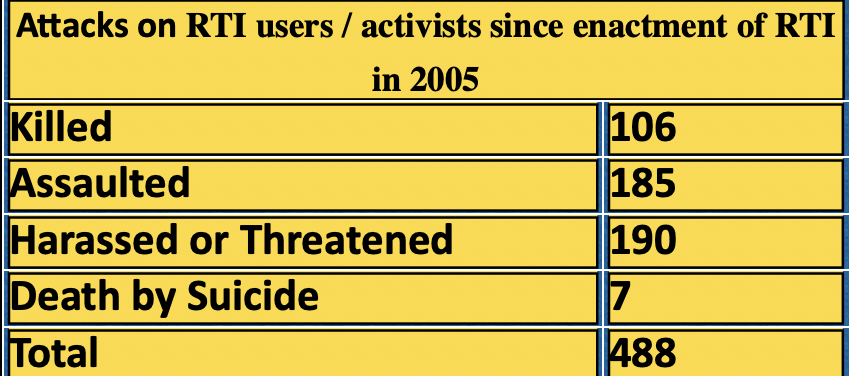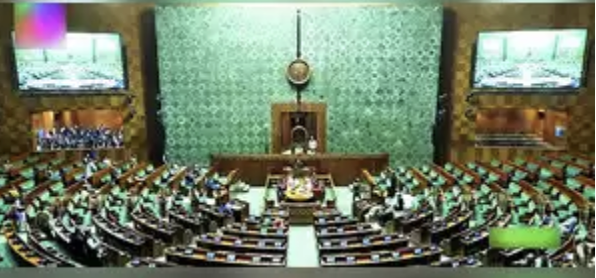In a surprising development, Justice Gautam Patel of the Bombay High Court has come out with a set of guidelines to deal with ‘protecting’ the identity of all parties in sexual harassment cases and also regulating the manner in which proceedings in such cases are reported. This amounts to a gag order, says Kajal Iyer and asks why the Right to be Forgotten is not strengthened instead.
(Re-published with permission from here)
The Bombay high court has come up with a fresh set of guidelines for cases regarding Sexual Harassment of Women at Workplaces, granting anonymity to both the accuser and the accused. As per the a report in Live Law Justice Gautam Patel, while stressing on a minimum requirement for guidelines, noted,
“It is imperative…to protect the identities of the parties from disclosure, even accidental disclosure, in these proceedings. This is in the interest of both sides.”
The court did say that these are just initial guidelines and will be subject to revision or modification as needed. The guidelines seek to anonymise the identities of all parties. The orders will not mention their names, instead using initials in the title and would mention them as plaintiff and defendant in the body. No order will be pronounced in open court and it will also not be uploaded on the High court website either.
All in all, this seems to come from a place of protecting the victim, preventing the victim’s identity being connected to the case for posterity, especially in the internet era.
There are a few questions this raises though about anonymising the convict
- While it is fair to anonymise while the person is still an accused, what is the larger logic of anonymising the offender once convicted? This is still unclear.
- In the absence of uploaded judgements, how do HR managers and others do background checks on applicants and avoid anyone who could possibly be a serial sexual offender? National database of sexual offenders is only accessible to law enforcement agencies in India.
- If the worry is about false cases, POSH is not the only crime, in which there are false cases. We have seen lives upended by wrongful application of sections of the IPC, UAPA and several other laws too. There is no similar protection to the accused in such cases. Will these guidelines, spark similar demands for anonymisation in other crimes?
- In the case of serial offenders at the workplace, much before these laws were enacted, women used to rely on office whisper networks of the sisterhood, to guard themselves against predatory men. #MeToo and subsequent changes in the law, encouraged women to speak up more freely about these incidents. The guidelines prevent both sides and all parties to refrain from mentioning any details of any order in media or social media, without permission from the court. There is a likelihood that the anonymisation coupled with this clause in the guidelines may be misused by serial offenders as grounds for defamation suits. With no order copy available, how is one supposed to use the defence of truth against defamation?
One can get behind the idea of not holding these hearings or giving out the orders in open court, as at times, this leads to sensational coverage, especially if someone even mildly famous is involved as a party to the case.
Post #MeToo, there were several men who sent notices to media houses and websites to remove content on the grounds that cases were not filed by their accusers. In many such cases, the men succeeded in getting their names removed too. Perhaps, instead of a gag order on reporting on near total anonymisation of convicted sexual offenders, the country needs proper guidelines on the Right to be Forgotten. That could more effective in protecting rights of both the victims and anyone wrongly accused of such crimes. One hopes subsequent revisions of these guidelines, consider these aspects.
GUIDELINES
ORDERS
In all orders, the endeavour will be to anonymize the identities of the parties.
Therefore:
(a) In the order sheets, the names of the parties will not be mentioned. The orders will read “A v B”, “P vs D” etc.
(b) In the body of the order, the parties will not be referred to by their names but only as Plaintiff, Defendant No.1 etc.
(c) In the body of any order, there will be no mention of any personally identifiable information (“PII”) such as email ids, mobile or telephone numbers, addresses etc. No witness’s names will be mentioned, nor will their addresses be noted.
(d) Orders/judgments on merits will not be uploaded. Because this order sets out general guidelines and does not address the merits, it is permitted to be uploaded.
(e) All orders and judgments will be delivered in private, that is to say, not pronounced in open court but only in Chambers or in-camera.
- FILING PROTOCOLS (a) No PII document shall be retained by the Registry when any affidavit, application or pleading is being filed. (b) For verification of identity, the Registry may ask for production of an identity document to establish the identity of the deponent, but no copy of any such document is to be retained on file. (c) In the short titles of all further affidavits, parties must use the anonymized title as given at the head of this order. (d) Under no circumstances will the registry enter the email id, mobile number, Aadhaar number or any other PII of any of the parties or witnesses in the CIS.
- ACCESS (a) The Registry will not permit anyone other than the Advocate-on-Record with a current and valid vakalatnama to take inspection or copies of any filing or order. (b) The entire record is to be kept sealed and is not to be given to any person without an order of the Court. (c) Fresh filings will also be sealed and kept with the main record. (d) The record is not to be digitized by any third-party solution provider without an order of the court. If the record is to be digitized, directions will be sought from the Court for supervised digitization.(e) Witness depositions will not be uploaded under any circumstances.
- HEARINGS (a) All hearings will only be in Chambers or in-camera. (b) There will be no online or hybrid facility for hearings. All hearings must be by physical attendance. (c) Only the advocates and the litigants are permitted to attend hearings. Support staff (clerks, peons, etc), must leave the Court. (d) Except the Court Master/Associate or Sheristedar and the stenographer or person providing secretarial assistance, other Court staff must also leave the court and not be present at the hearing.
- DIRECTIONS TO CERTIFIED COPY DEPARTMENT (a) The Certified Copy Section/Department will not raise any objection because of the difference in the short or long title of the matter and the order in question. (b) To the extent possible, parties will function using an ordinary, authenticated or digitally signed copy of every order.
- PUBLIC ACCESS (a) If any order is to be released into the public domain,this will require a specific order of the Court. (b) This will be on the condition that only the fully anonymised version of the order of judgement is let into the public domain for publication.
- BREACH (a) The prohibition on publishing the names, address orother PII of the parties is absolute. (b) It will continue to apply where that information about the parties has been obtained by using the contents of a judgment or order to discover information already in the public domain. (c) All persons, including the media, are required to ensure strict compliance with these conditions of anonymity. Failure to do so will be a contempt of court.
- MEDIA DISCLOSURE FORBIDDEN
(a) Both sides and all parties and advocates, as also witnesses, are forbidden from disclosing the contents of any order, judgment or filing to the media or publishing any such material in any mode or fashion by any means, including social media, without specific leave of the court (b) Witnesses to the action, in addition to the usual oath, must sign a statement of non-disclosure and confidentiality (c) All concerned will be bound by these guidelines, and failure to abide by these conditions will also be a contempt of court.
- RECORDING PROHIBITED (a) Any form of recording of any part of the proceedings isstrictly forbidden. (b) Any attempt to record or transcribe any part of the proceedings will be a contempt of court.
- INDUSTRIAL/LABOUR COURT PROCEEDINGS (a) The Plaintiff has a pending appeal before the Industrial Court/Labour Court. That Court will strictly adopt and follow these and any future guidelines. Under no circumstances will that Court deviate from these Guidelines. (b) A copy of this order will be sent to the president of that court for his immediate attention and action. Both sides will ensure that a copy of this order is placed before the president of that Court and the presiding judge.
Click here for the order
(Kajal Iyer is a Mumbai-based journalist who worked for more than a decade with Times Now and other television channels. A law student, she writes on Mumbai, Gujarat, legal analysis and mental health).


